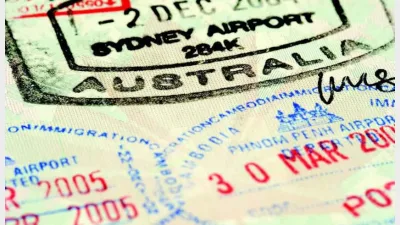Inflation puts young Australians on edge


Almost half of Gen Z Australians feel ill-equipped to make financial decisions amid rising cost of living, according to new research by Finder.
Some 49 per cent said they were unprepared for the current inflationary environment, compared to 18 per cent of Baby Boomers.
Finder’s survey of some 1,053 respondents noted that, on a national level, one in three Australians (32 per cent) did not feel equipped to make decisions about their money during times of inflation.
Women were almost twice as likely (42 per cent) than men (22 per cent) to say they felt out of their depth.
“As Australians attempt to navigate through this difficult time, it’s extremely valid to feel unprepared,” observed Rebecca Pike, money expert at Finder.
“A significant number of people, especially those who are younger, will have never experienced times like this before.”
Amid such uncertainty, she believed it was important to stay educated on inflation and how it could impact finances.
“Setting a budget is particularly important during inflation and can help you identify where to cut back and make adjustments on your spending,” Pike added.
“It’s crucial to consider any financial action you take that could affect your long-term goals. If you’re struggling, consider speaking to a financial adviser who can provide you with personalised advice.”
Another Finder survey on saving habits found that 47 per cent of Australians had taken money out of their savings account in the past 12 months. The average withdrawal stood at $2,465 and amounted to $47 billion nationwide.
Additionally, women were reported to have spent more of their savings over the past year, withdrawing $2,524 on average, compared to $2,199 for men.
Compare the Market’s latest Bill Shock Survey of 1,000 Australians noted that financial stress continued to grow among the population.
Some 21 per cent of respondents said they felt stressed about money every day, and 24 per cent felt pressure around finances at least once a week.
“That figure is up 6 per cent since the last time we ran our survey in December,” explained Chris Ford, general manager - media and communications at Compare the Market.
“The figures show the rise in living expenses is starting to impact our spending behaviour, with more consumers cutting back on discretionary spending and shopping around in attempts to save.”
Almost 80 per cent reported shock over the price of everyday products like fuel, electricity, gas, and water bills.
Additionally, 57 per cent reported unexpected expenses such as home repairs, vehicle repairs, medical emergencies, and unexpected travel.
Recommended for you
The Financial Services and Credit Panel has made its latest ruling over a case involving an incorrect Statement of Advice.
With Fortnum Private Wealth and Professional Financial Services now unified under the Entireti umbrella company, CEO Neil Younger has detailed to Money Management the firm’s new direction and future expansion.
The FAAA has suggested looking offshore for overseas financial advisers to ease the adviser shortage, but are employers willing to take on the burden of workplace visas?
There may be a huge influx of alternatives coming to the market, but timing and access difficulties mean advisers can easily end up disappointed with their selection, according to Morningstar global CIO Dan Kemp.
















Add new comment